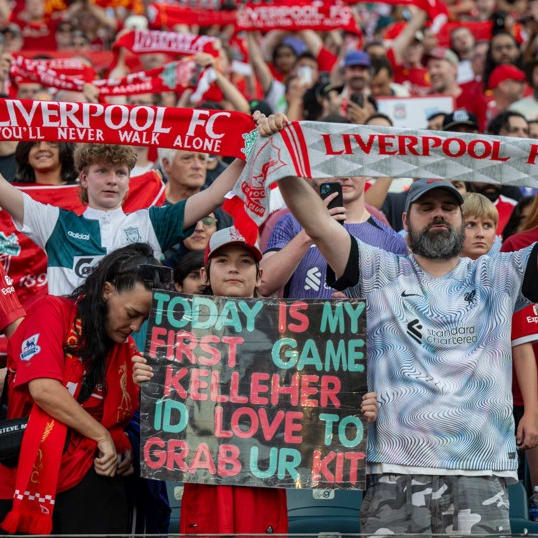This article is part of our Daily Fantasy Soccer Cheat Sheet series.
Fantasy production by position is an under-studied area in DFS soccer, partially because the information is usually tough to locate. That was one of the defining reasons why we wanted to make detailed positions a clear part of our player game logs, stat pages, box scores and formations pages. It isn't to say that fantasy decisions should only be made because of the team positions and not the players themselves, but it certainly should be a consideration.
Many DFS players have gotten used to solid production out of the Southampton fullbacks over the past few years, but we haven't been able to nail down whether it's because those spots are good for fantasy production or if the regular starters -- Ryan Bertrand and Cedric Soares -- are themselves the key to points. Should their replacements be as effective simply because they are Southampton right-backs or left-backs? The answer is obviously not black and white, but that doesn't mean we can't dive in to see which team positions were the most fantasy-friendly last season.
The chart below breaks down every team position from the 2017/18 Premier League season by individual stats on DraftKings, as well as the specific player who lined up in those spots more often than any other. To scale down the list, I used a minimum of 720 minutes, or the equivalent to eight full matches. All of the information is derived from our Player Stats Pages, and you can even dive deeper by
Fantasy production by position is an under-studied area in DFS soccer, partially because the information is usually tough to locate. That was one of the defining reasons why we wanted to make detailed positions a clear part of our player game logs, stat pages, box scores and formations pages. It isn't to say that fantasy decisions should only be made because of the team positions and not the players themselves, but it certainly should be a consideration.
Many DFS players have gotten used to solid production out of the Southampton fullbacks over the past few years, but we haven't been able to nail down whether it's because those spots are good for fantasy production or if the regular starters -- Ryan Bertrand and Cedric Soares -- are themselves the key to points. Should their replacements be as effective simply because they are Southampton right-backs or left-backs? The answer is obviously not black and white, but that doesn't mean we can't dive in to see which team positions were the most fantasy-friendly last season.
The chart below breaks down every team position from the 2017/18 Premier League season by individual stats on DraftKings, as well as the specific player who lined up in those spots more often than any other. To scale down the list, I used a minimum of 720 minutes, or the equivalent to eight full matches. All of the information is derived from our Player Stats Pages, and you can even dive deeper by using our Defense vs. Position Pages to see which positions were the most prolific against certain teams (for example, Brighton allowed an average of 4.32 crosses per 90 minutes to left-backs last season, the highest average in the league). This is obviously not an end-all, be-all solution but simply a clearer way to see if there were certain team positions that were more effective than others last season.
A few notes before we dive in:
• All positions shown are Opta's estimates based on certain formations and are only relevant for starters.
• Certain positions are different based on formation. For example, "ML" could be a left-sided midfielder in a 4-4-2 (like Johann Berg Gudmundsson for Burnley) or a wing-back in a 3-5-2 (like Marcos Alonso for Chelsea).
• "TEAM MIN" indicates the total number of minutes played by starters for each position over the course of the 2017/18 season. However, not every team had a starter at each available position, which is why they will not show up. For example, Chelsea used three center-backs and two wing-backs in all 38 games last season, so there were no stats accumulated for "CHE DL," which would be a left-back in a four-man back line.
• The player listed in each row is the one who played the most minutes at that position. However, the stats shown are the averages for every player at that position. This is an important caveat because one player may have been very prolific in one position while another was not, but the stats shown don't necessarily show that. The clearest example is "BUR ML," which was a heavily crossing position when Gudmundsson started there, but he actually played fewer minutes in that spot than Scott Arfield, who wasn't nearly as prolific a fantasy scorer.
• Relegated teams were left in to show the effectiveness of players who may have transferred to current Premier League tams.
Team Position Legend: FW = forward, FWL = forward (left), FWR = forward (right), AMC = attacking midfielder (central), AML = attacking midfielder (left), AMR = attacking midfielder (right), MC = midfielder (central), ML = midfielder (left), MR = midfielder (right), DMC = defensive midfielder (central), DML = defensive midfielder (left), DMR = defensive midfielder (right), DC = defender (central), DL = defender (left), DR = defender (right), GK = goalkeeper
Stat Legend: TEAM MIN = total minutes played by starting players at that position, MIN = total minutes by the specific player who played the most minutes at that position, Floor/90 = positive fantasy points per 90 minutes excluding goals, assists, clean sheets, fouls committed and cards, G = goals, A = assists, S = shots, SOG = shots on goal, INT = interceptions, CR = crosses, CC = chances created (shots assisted), TKLW = tackles won, FC = fouls committed, FS = fouls suffered, P = passes (completed)










